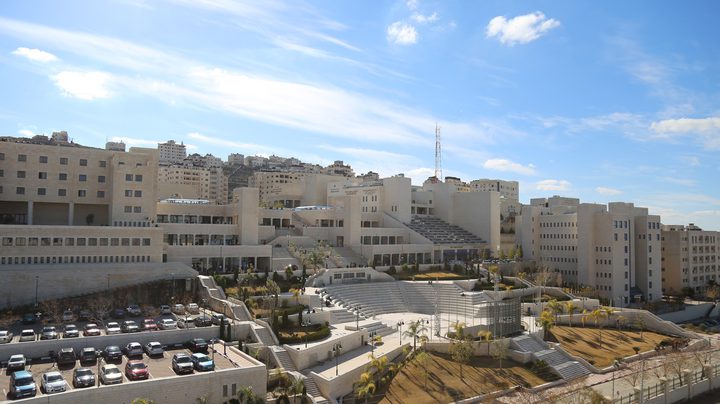An-Najah News - This collaboration is through Clemson's Creative Inquiry research hub that centers small group, team-based investigations of challenges with an action and solution driven approach. During this first semester of the initiative, Nadian Melhem and Marah Salem, two students from the computer engineering department, were accepted into the Creative Inquiry course titled 'Machine Learning and Big Data Research.' Nadian and Marah completed a portion of their senior project through this course and had joint project supervision and feedback from Clemson University's associate professor of Electrical Engineering and Computer Engineering and Associate Dean of Inclusive Excellence and Graduate Studies, Dr. Melissa Smith, and Research Assistant and PhD candidate Ben Shealy. They were also co-supervised by the Dean of the Faculty of Engineering, Dr. Samer Arandi, and assistant professor of computer engineering, Dr Mona Demaidi.
Reflecting on her experience in this course, Marah notes 'my favorite aspect of the course was the opportunity to study all of the course materials and resources throughout the week on my own time, and then during the class meeting have the whole time dedicated to sharing our work with the entire class, allowing us to exchange experiences with the professors as well as our American counterparts.' Marah and Nadian completed their project in machine learning by creating a recommendation system based on data and launched a preliminary version of it during the spring semester.
This pilot virtual exchange collaboration's success has led Clemson University's Office of Global Engagement decision to expand the program, with the aim of developing a 'Global Creative Inquiry,' which will be an international consortium of Universities including An-Najah and academic institutions in Japan, Australia, Egypt, and Scotland. Part of this expansion will include increased participation from An-Najah in the fall 2021 academic semester.
The Dean of Engineering and Information Technology praised the collaboration, saying 'providing more opportunities for our students to work with international researchers and peers in their specialty is exactly in line with our goal of preparing our graduates for the global economy. I look forward to supporting the further development of this collaboration.'
While informal virtual exchange has been utilized by professors across faculties for over a decade with international colleagues and students, the IDEA Office has led the University's efforts in expanding virtual exchange programming and partnerships across the University's faculties since becoming a virtual exchange grantee of the Aspen Institute's Stevens Initiative in 2017 through a collaboration between the Faculty of Engineering's Building Engineering department and Arizona State University's Sustainable Design School. More recently, the IDEA office has led University wide efforts in in expanding virtual exchange through partnerships with the Erasmus + Virtual Exchange project, Soliya's Connect programs, and University debate programs, which include cross cultural dialogue virtual exchange among An-Najah






